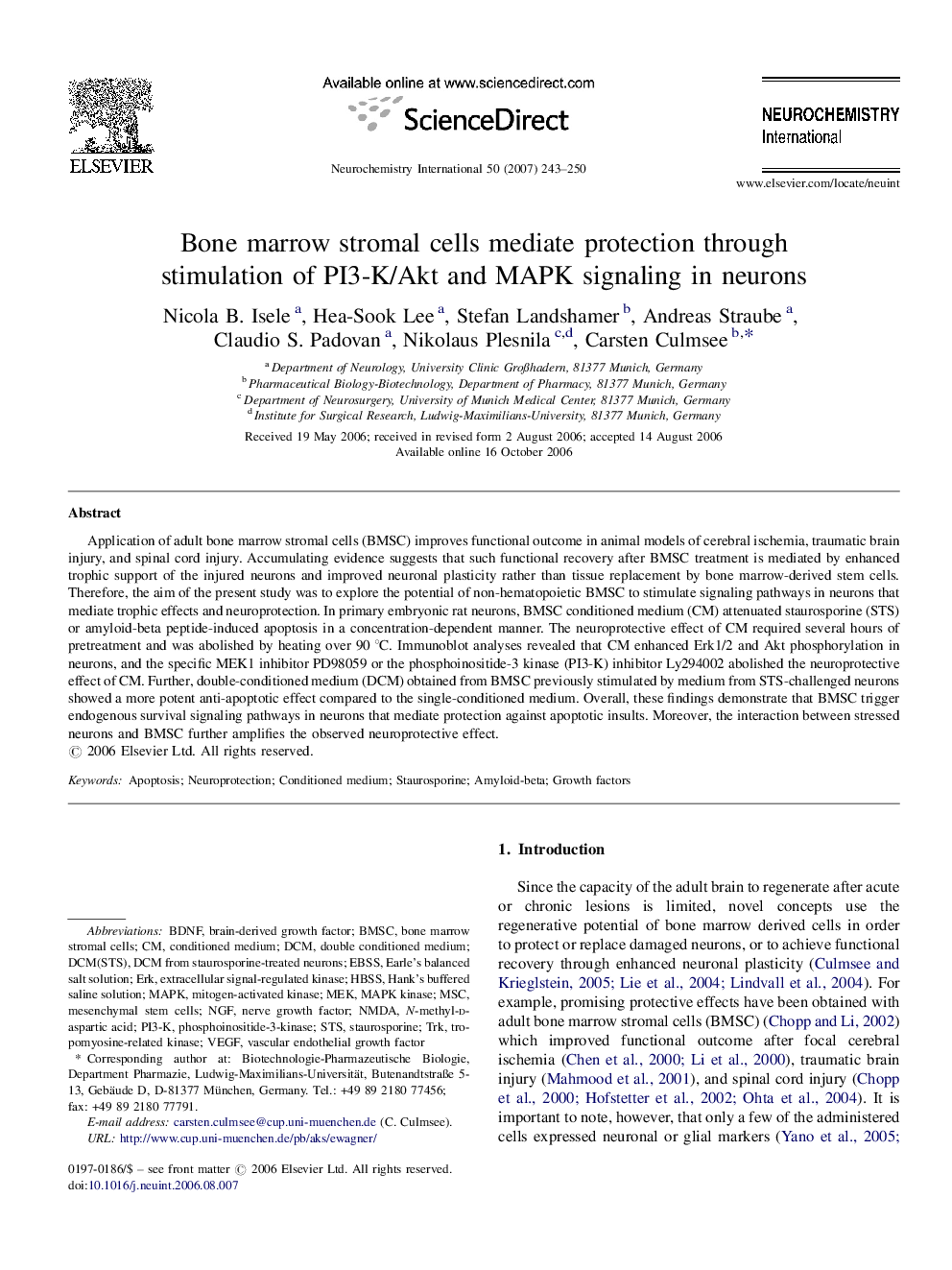| Article ID | Journal | Published Year | Pages | File Type |
|---|---|---|---|---|
| 2202253 | Neurochemistry International | 2007 | 8 Pages |
Application of adult bone marrow stromal cells (BMSC) improves functional outcome in animal models of cerebral ischemia, traumatic brain injury, and spinal cord injury. Accumulating evidence suggests that such functional recovery after BMSC treatment is mediated by enhanced trophic support of the injured neurons and improved neuronal plasticity rather than tissue replacement by bone marrow-derived stem cells. Therefore, the aim of the present study was to explore the potential of non-hematopoietic BMSC to stimulate signaling pathways in neurons that mediate trophic effects and neuroprotection. In primary embryonic rat neurons, BMSC conditioned medium (CM) attenuated staurosporine (STS) or amyloid-beta peptide-induced apoptosis in a concentration-dependent manner. The neuroprotective effect of CM required several hours of pretreatment and was abolished by heating over 90 °C. Immunoblot analyses revealed that CM enhanced Erk1/2 and Akt phosphorylation in neurons, and the specific MEK1 inhibitor PD98059 or the phosphoinositide-3 kinase (PI3-K) inhibitor Ly294002 abolished the neuroprotective effect of CM. Further, double-conditioned medium (DCM) obtained from BMSC previously stimulated by medium from STS-challenged neurons showed a more potent anti-apoptotic effect compared to the single-conditioned medium. Overall, these findings demonstrate that BMSC trigger endogenous survival signaling pathways in neurons that mediate protection against apoptotic insults. Moreover, the interaction between stressed neurons and BMSC further amplifies the observed neuroprotective effect.
